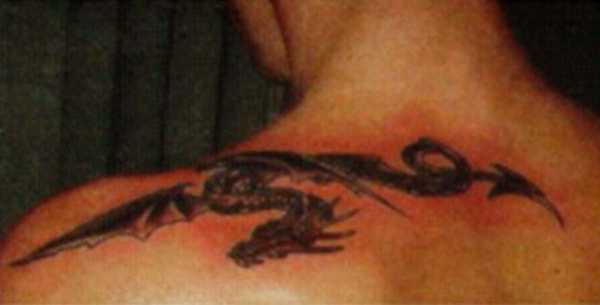Do MRI Machines Affect Tattoos?

Get the world’s most fascinating discoveries delivered straight to your inbox.
You are now subscribed
Your newsletter sign-up was successful
Want to add more newsletters?

Delivered Daily
Daily Newsletter
Sign up for the latest discoveries, groundbreaking research and fascinating breakthroughs that impact you and the wider world direct to your inbox.

Once a week
Life's Little Mysteries
Feed your curiosity with an exclusive mystery every week, solved with science and delivered direct to your inbox before it's seen anywhere else.

Once a week
How It Works
Sign up to our free science & technology newsletter for your weekly fix of fascinating articles, quick quizzes, amazing images, and more

Delivered daily
Space.com Newsletter
Breaking space news, the latest updates on rocket launches, skywatching events and more!

Once a month
Watch This Space
Sign up to our monthly entertainment newsletter to keep up with all our coverage of the latest sci-fi and space movies, tv shows, games and books.

Once a week
Night Sky This Week
Discover this week's must-see night sky events, moon phases, and stunning astrophotos. Sign up for our skywatching newsletter and explore the universe with us!
Join the club
Get full access to premium articles, exclusive features and a growing list of member rewards.
From infectious diseases to allergic reactions, tattoos carry many risks but one often overlooked safety hazard is how tattoos react to MRI scans.
MRI (Magnetic Resonance Imaging) machines are used to locate tumors and other abnormalities within the human body using extremely strong magnets. Along with these magnets, an MRI machine uses radio frequency waves to make protons in the body's cells react, emitting signals that show up as a grayscale image, according to the National High Magnetic Field Laboratory at the University of Florida.
Tattoos can hinder an MRI scan depending on the ingredients used in the tattoo ink and the size of the tattoo. Since there are currently no FDA-approved tattoo inks, determining which chemicals were used in a tattoo can be tricky. But experts say that some ink colors cause more of a reaction than others.
The dye used in red tattoo inks contains iron (for example, think of the color rust), which is magnetic and very susceptible to the magnetic fields used in MRI machines, said Moriel NessAiver, a physicist who teaches MRI safety in Baltimore.
"Since iron can conduct electricity, loops of current are induced when the magnetic fields are rapidly changing during the imaging process," NessAiver told Life's Little Mysteries. "Any time you have a current flowing, as in a wire or other metal, that metal can get hot hot enough to burn."
If the tattoo is in the shape of a loop, it can act like an antenna, and can also get increasingly hotter as the ink pigments pick up more energy from the magnets, according to NessAiver. The reaction can result in swelling of the tattooed skin and its surrounding area, as well as the flesh feeling hot and irritated.
The most serious reactions result in first and second-degree burns, according to a 2009 study conducted by Italian scientists and published in the International Journal of Environmental Research and Public Health.
Get the world’s most fascinating discoveries delivered straight to your inbox.
Tattoos near the eyes are particularly of concern, as the area can be very sensitive to excess heat. The FDA's Office of Cosmetics and Colors warns those with permanent facial tattoos (such as eyeliner, eyebrow and lip liner tattoos) to consult with their doctor and MRI technician regarding possible burn risks so that precautions can be taken.
While any metallic substance poses a health risk when MRI machines are involved (that's why people with cardiac pacemakers and inner ear implants that contain metal parts cannot get MRIs), the FDA assures that tattoo burns from MRI machines "seem to occur only rarely and apparently without lasting effects."
"Best advice is, don't get a tattoo," NessAiver said. "If you have them and need an MRI scan, be sure to tell your doctor and the MRI technologists so they can evaluate the risk versus the benefit. If your tattoo's ink does not have any iron in it, then it should be pretty safe."
Got a question? Email it to Life's Little Mysteries and we'll try to answer it. Due to the volume of questions, we unfortunately can't reply individually, but we will publish answers to the most intriguing questions, so check back soon.
 Live Science Plus
Live Science Plus










